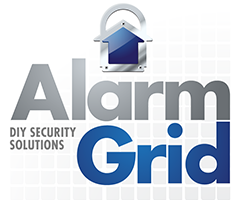What Gauge Wire Should I Use for a CO Detector?
You should use 18-gauge wire for a CO detector. This is the recommended wire thickness for nearly all hardwired alarm system applications. In practice, you should have no problem using slightly thinner or thicker wire, like 22-gauge or 16-gauge. But doing so may violate building code.

The reason why 18-gauge wire is recommended for hardwired alarm system installations is because of its great versatility. The wire offers the perfect balance of maximum wire run length and wire flexibility. Using a thicker wire will allow for longer wire runs, while using a thinner wire will increase flexibility. Remember, the higher the gauge number, the thicker the wire. Alarm Grid recommends the use of stranded wire due to its ability to be cut and spliced without being easily damaged.
As stated before, 18-gauge wire is the standard wire for alarm system installations. But if you already have 22-gauge wire or 16-gauge wire around, then that should work just fine. Just keep in mind that some building codes may mandate the use of a particular gauge wire, often 18-gauge. This is usually more common in commercial applications. Using a thinner wire may be in violation of building code. Check with the requirements for your local jurisdiction to see if a particular gauge of wire is needed.
Most hardwired carbon monoxide detectors use either a 2-wire or 4-wire connection when wiring to the panel. If you are using a 2-wire connection, then a 2-conductor wire is recommended. Likewise, if you are using a 4-wire connection, then a 4-conductor wire is recommended. But remember, you can always double-up 2-conductor wire for a 4-wire connection. Alternatively, you can always leave two of the inner wires for a 4-conductor wire disconnected for a 2-wire connection. Alarm Grid sells 18-gauge, 2-conductor wire and 18-gauge, 4-conductor wire on its website.
Did you find this answer useful?
We offer alarm monitoring as low as $10 / month
Click Here to Learn MoreRelated Products



Related Categories
- Wired Carbon Monoxide Detectors
- Wired Carbon Monoxide Interface Modules
- High Voltage Wired CO Detectors
- Answered


